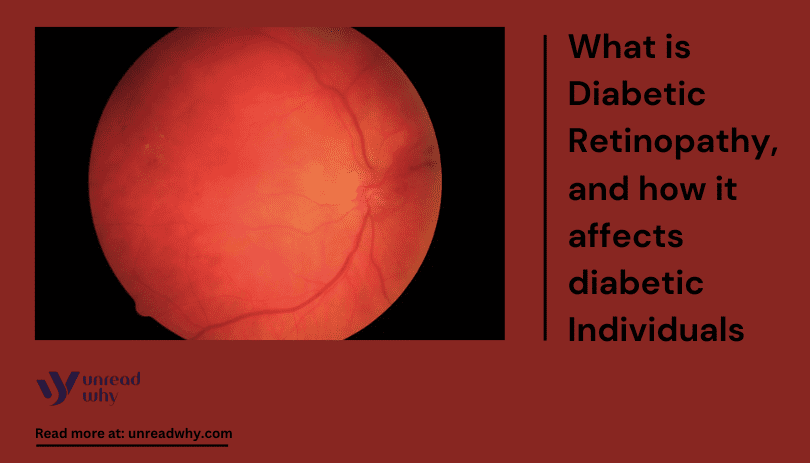Impact of diabetes on eye health
Diabetic eye disease has become one of the main causes of visual impairment and blindness across different parts of the globe, particularly affecting elderly populations who have an uncontrolled blood sugar level. These conditions have given rise to diabetic macular oedema, cataracts, and Diabetic Retinopathy, which have impacted the quality of life among a large number of people across the globe. One of the major complications of high levels of sugar is that it leads to significant ocular morbidity, which is induced by Diabetic Retinopathy.
For this reason, “Diabetic Retinopathy” has become a predominant microvascular complication among diabetic patients, which contributes to being one of the leading causes of vision loss and ocular morbidity among diabetic individuals. The pathology of this disease involves various interconnected metabolic anomalies initiated by elevated levels of glucose, with the early occurrence of increased “cytosolic reactive oxygen species” (ROS) in the retina. This contributes to significant damage to the tissues surrounding in retina, which causes partial vision loss to total blindness if the blood sugar level is not managed adequately.
Stages of Diabetic Retinopathy
There are mainly two major stages of “Diabetic Retinopathy” such as “non-proliferative diabetic retinopathy” and “proliferative diabetic retinopathy.” The non-proliferative one is the early stage of diabetes. In this stage of “Diabetic Retinopathy” in the macula, which is near the centre of the retina, there is an accumulation of blood that can be visualized through a dilated eye exam, which is often characterized by tiny areas of inflammation in the blood vessels in the retina.
This stage often goes unnoticed, which could lead to the development of the second stage of diabetic retinopathy, which is called “proliferative diabetic retinopathy.” This is an advanced stage of diabetic-related eye disease, and it happens when new blood vessels start to grow in the retina. Therefore, it can form scar tissue, which may increase the likelihood of retinal detachment and vitreous haemorrhage.
Signs and Symptoms of Diabetic Retinopathy
In the early stage of diabetic-related eye problems, symptoms may be absent, but some people could experience blurry vision and a sudden decline in visual acuity along with an increase in eye floaters due to the bleeding in blood vessels that exist around the retina. As a result, if the early signs and symptoms are overlooked by diabetic individuals, total irreversible blindness may occur.
Treatment and prevention for “Diabetic Retinopathy”
As of now, the main treatments for “Diabetic retinopathy.” are vitreoretinal surgery (Vitrectomy), photocoagulation, and intravitreal corticosteroids. Vitreoretinal surgery is generally recommended for individuals who are at the later stage of diabetic retinopathy, which is known as “proliferative diabetic retinopathy.” This surgical procedure is generally conducted by vireo-retinal surgeons, and the main aim is to remove the vitreous gel and blood from the retina surrounding tissues and vitreous humour.
This allows light rays to focus correctly on the retina, which may improve vision over time. On the other hand, laser photocoagulation is another effective treatment for “Diabetic Retinopathy” and through this procedure vitro retinal surgeons use a laser at a certain part of the retina to prevent the proliferation of abnormal blood vessels from growing.
However, diabetic patients controlling their blood sugar levels could lower the chances of recurrences, and following the guldens relating to the prevention of this disease could be an effective solution to lessen the possibility of diabetic-related eye problems, which have affected a large number of people across the globe. Also, frequent follow up with doctors is necessary to prevent the progression of diabetic eye problems.


